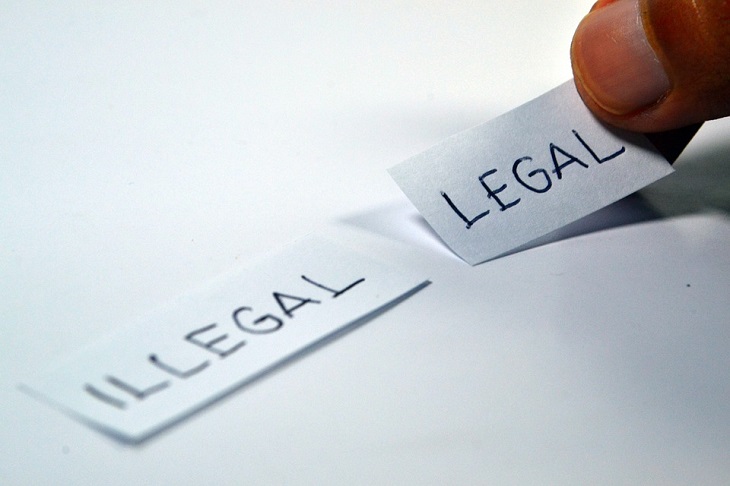When Fox News anchor, Chris Wallace, announced that he was leaving Fox News last Sunday, the only question was whether he jumped or was pushed…
Wallace, you may remember, moderated the second Presidential Debate between President Trump and Joe Biden. The word ‘moderated’ does not do justice to Wallace’s biased performance. He rode shotgun on Joe Biden’s stagecoach, protecting Biden from Trump’s attack.
Wallace has been a fixture at Fox News for almost twenty years. His show was eloquently described by The Federalist as, ‘Where Wallace asked all the right questions (which is to say, the ones his peers in the media and no one else cares about) and booked all the right guests (which is to say, the ones who live in the D.C. area and work at places like the Washington Post or some other “respected” publication).’
He was the ultimate, biased hack.
Rather than investigate the news, Wallace was more concerned about reporting the narrative created by other journalists – perhaps on the assumption that there is safety in numbers.
If it sounds all too familiar, it is because our home-grown scribes did not so much create a narrative in respect of government Covid policies – they allowed the various governments to create their own self-serving narrative at the daily press conferences.
A political consensus formed of what was needed, which the journalists and reporters then promoted to the public in the multitude of daily television news breaks day. The narrative then went unchallenged by these ‘independent journalists’; a narrative that went unchallenged despite the almost daily changes and reversals of policies – changes that continue to this day. Those who opposed this consensus were either attacked or silenced, even as government policies became more and more draconian.
Australia’s media rapidly became servants of the ruling class.
If, as one newspaper masthead proclaims, our freedom depends on a free press, then so do our chains. That is not to conclude that the governments’ mandated masked-ups, lockdowns, border closures, social distancing, and vaccination were wrong or not ‘science based’, but how would we know? There are genuine concerns in the community about those policies, both their nature and extent. The public were not given the opportunity to question the politicians and those who objected were locked up and fined.
The media, on the other hand, went to those interminable press conferences and if they asked anything, it was only to make sure they got the details of the announcement correct. If the media don’t ask the governments to justify their policies, the demos are obliged to invent reasons for disobedience. Had the governments been true to our democratic principles, they would first have sought the public’s electoral approval by laying their policies and expected duration before them.
What should the media have done?
It needed to acquaint itself with details of the virus and how it differs from other viruses. The anti-vax public, for example, had specific concerns about the vaccines. With information about the virus and knowledge of the vaccine science, the journalists were in a position to question the government on issues of safety, vaccine efficacy, duration, and put alternative facts to the government spokesmen. None of that happened.
If persistent state government border closures were due to their fear that they had insufficient ICU units in the states’ public hospitals, the public had a genuine political interest in knowing that their respective governments were responsible. How many ICU units for each state were fully staffed in March 2020 and how many in December 2021?
There have been many issues in relation to this Covid virus and governments’ policies that have been ignored by the media. When Clive Palmer sued Western Australia for interstate access, the federal government initially became a party to that suit, only to withdraw at the final moment. What questions were addressed to Scott Morrison or the Attorney-General, Christian Porter?
When filing its Notice of Intervention, Mr Porter said of the Commonwealth’s involvement: ‘As we have said all along, that we believe the WA Government’s position is likely unconstitutional.’
That is a rather damning admission for if WA was in breach of the Constitution, so was every other state.
When the Commonwealth withdrew from the case, Scott Morrison advised the Western Australian government: ‘I consider, on balance, that we must set aside the normal convention in these circumstances and not continue the Commonwealth’s participation in this case.’ This shows an appalling ignorance of how the Constitution was designed to work.
Those before and after statements were reported, but they deserved greater attention from the media. If Western Australia was acting unconstitutionally according to the Attorney General, then Scott Morrison’s reference to setting aside ‘the normal convention’ suggests that the Constitution is nothing more than a convention and not the supreme law of the land.
The public not only deserves to know what the PM really thinks about the Constitution, it needs to know if its rights are to be protected. The Australian Constitution was supposed to protect the Australian people from arbitrary and capricious government, both Commonwealth and states.
What does it say about the PM if he thinks the caprice of state governments is just a matter of convention?
Got something to add? Join the discussion and comment below.
Get 10 issues for just $10
Subscribe to The Spectator Australia today for the next 10 magazine issues, plus full online access, for just $10.

























Comments
Don't miss out
Join the conversation with other Spectator Australia readers. Subscribe to leave a comment.
SUBSCRIBEAlready a subscriber? Log in